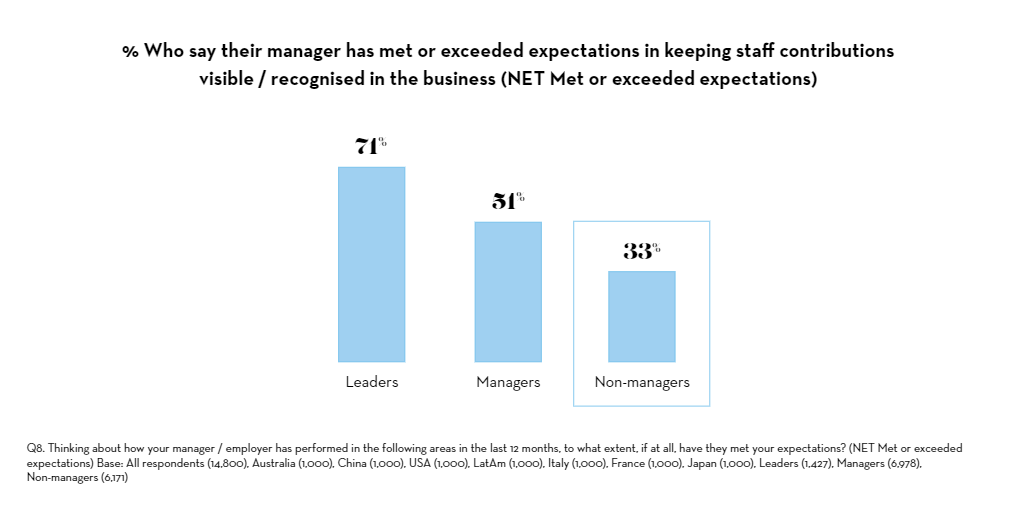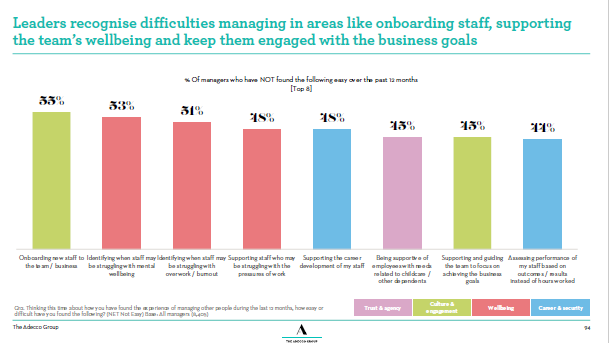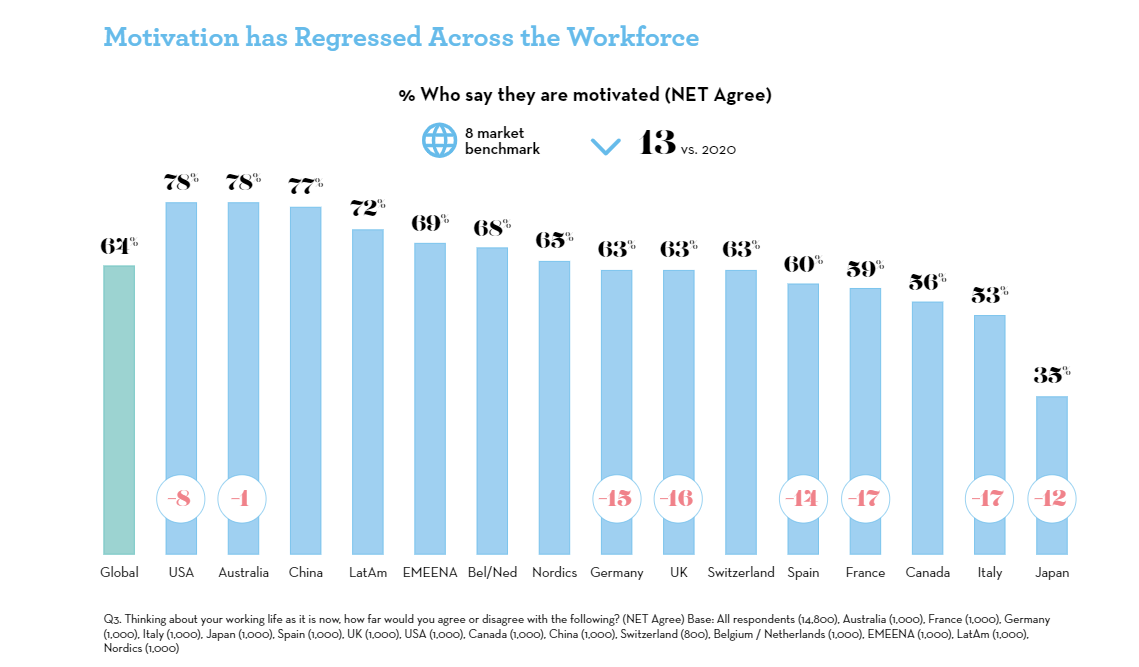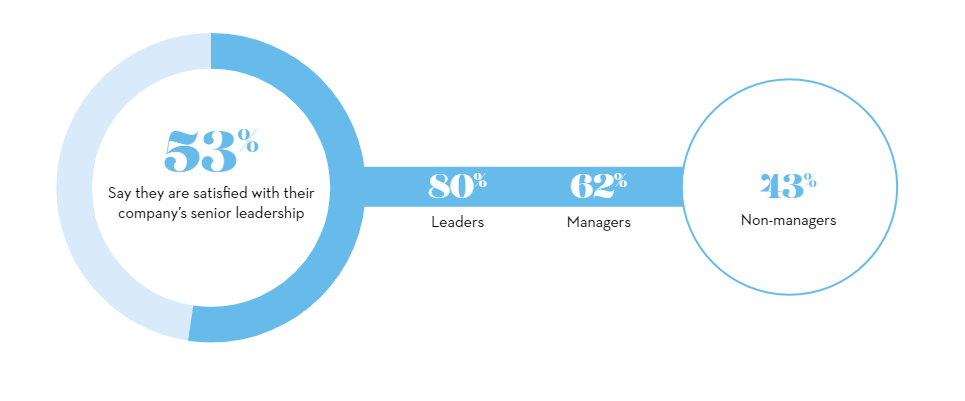At a time when workers remain connected all the time, the workforce has never felt more disconnected. Despite the always-on Teams messages and after-hours emails, worker motivation is lower than ever before in the pandemic – and leaders are struggling to see the signs.
To fully understand the rising and shifting expectations and attitudes of both employees and managers in this new era of work, the Adecco Group commissioned an eight-market study into attitudes, behaviours, and outlooks of office-based workers on the future of work. Resetting Normal: Defining the New Era of Work helped businesses and organizations better navigate uncertain times in 2020.
The second edition of Resetting Normal, which you can download here, builds upon our original research and expands on the outlook for the future of work for 2021 and beyond surveying 14,800 knowledge-workers across 25 countries.
In our survey, we found a significant disconnect between management views of their own performance – and the opinions of their employees on their performance. Relationships, team motivation, and the sense of company culture have all regressed since the pandemic began in 2020. These disconnects pose a major threat to overall company cohesions. Only leaders hold the key to reconnecting employees and re-inventing the corporate culture.
Disconnected Workers: The Warning Signs for Leaders
Across the globe, the relationships between leaders and their employees have deteriorated. The pandemic has had a detrimental impact on leadership-employee relations, with less than half (45%) of non-managers saying their relationship is good – a 17-point drop from 2020.
Only a third (33%) of non-managers feel they are getting due recognition for their contributions within the business, and less than four in ten are satisfied with their development opportunities in the company. Just 34% of non-managers are satisfied with their career prospects and 37% feel their company is investing in developing their skills.

.png?h=728&iar=0&w=1080&hash=DB27B4A646635B0C624E1DA212615EF2)
Leaders are feeling that same disconnect. Almost half (46%) of managers recognise difficulties managing others over the past 12 months. They are specifically struggling with onboarding, identifying when staff may be struggling and supporting their career development (48%).
However, more than three quarters (77%) of managers say they are satisfied with their own performance. Only 57% of non-managers are satisfied with the performance of their manager.

Motivation Fatigue and Performance Perspectives
Workforce motivation is down across the board since our 2020 study. Only 43% of non-managers say they are satisfied with their boss. Nearly two thirds (64%) of respondents worldwide saying they feel motivated. That’s a 13-point drop from 2020.
In fact, non-managers reported the worst motivation levels and the biggest deterioration in motivation levels (12%) compared to this time last year.

Reconnecting the Disconnect
Worker motivation, relationships, and the sense of team and company culture have deteriorated in the past 18 months. Employees are unhappy with the career prospects and skills development opportunities their companies offer. Leaders hold the key to re-connecting people to the company purpose, helping them feel like they belong, and providing them with motivational development and career opportunities.
However, leaders across the globe are struggling to recognize the issues and spot the disconnect. Companies must support the new breed of leaders to ensure they are well-placed to address major threats to company cohesion.

Equipping leaders with upskilling, coaching, resources and technology that will help them to better listen to and manage their teams, increase and nurture motivation, and set a strong team morale and culture is a priority for businesses in the new hybrid working model. Ezra’s coaches and leaders are already helping to better support training for leaders; they’re offering free coaching opportunities for leaders on managing the virtual workplace.
Companies must identify the skills and capabilities required for a competitive future. This should also feed into the creation of a comprehensive range of reskilling and upskilling opportunities for all company workers, regardless of position, in order to future-proof the company and its employees.
Further Insights
To continue to thrive in the new normal, organisations need to evolve and adapt to better meet the needs of their employees. The Adecco Group and its brands stand ready to help organisations navigate this new path. To read further insights from our 2021 Resetting Normal report, download the complete report and white paper here.



